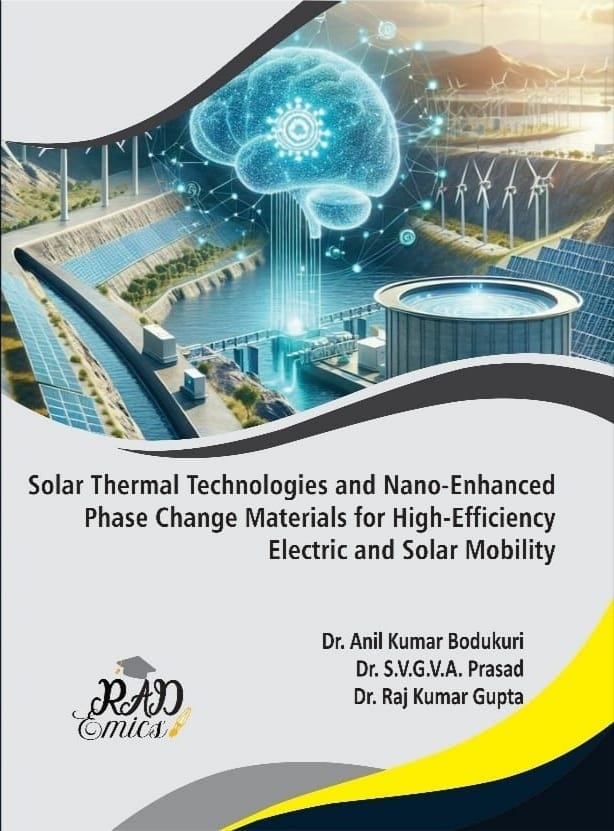
Author Name : Nitin Dattatray Nikam
Copyright: @2025 | Pages: 31
DOI: 10.71443/9789349552654-01
Received: 15/01/2025 Accepted: 07/04/2025 Published: 27/06/2025
The intersection of algorithmic intelligence and social pedagogy is redefining the landscape of solar thermal energy conversion and advanced collector design for high-efficiency applications. This chapter presents a comprehensive framework that integrates artificial intelligence (AI)-driven personalization with pedagogical strategies to enhance the design, deployment, and educational diffusion of solar thermal technologies. Emphasis is placed on AI’s role in optimizing energy conversion mechanisms through data-driven modeling, predictive analytics, and real-time system adaptation, thereby improving thermal performance and system longevity. Concurrently, the chapter explores the transformative potential of social pedagogy in reshaping renewable energy education by fostering inclusive, context-sensitive, and learner-centric models. Through the development of AI-enhanced learning environments, Open Educational Resources (OERs), and cross-sectoral collaborations, the chapter outlines the foundations for a more equitable and technologically advanced energy education system. Key focus is given to capacity building through localized solutions, policy support, and pedagogical infrastructure that bridge the gap between advanced solar technologies and their real-world implementation. The fusion of AI and social pedagogy not only accelerates technological innovation but also ensures ethical, scalable, and community-aligned solutions to energy challenges. This integrative framework sets a precedent for future research, policy development, and educational strategies aimed at supporting sustainable energy transitions through intelligent and inclusive approaches.
The transition to renewable energy systems has become a global imperative in response to escalating climate change, energy security concerns, and the finite nature of fossil fuel resources [1]. Among renewable technologies, solar thermal energy conversion plays a crucial role in harnessing solar radiation for heating, electricity generation, and industrial processes [2]. Traditional collector systems, while effective to a degree, often suffer from inefficiencies due to static designs, limited adaptability, and variable environmental performance [3]. To overcome these limitations, the integration of algorithmic intelligence, particularly artificial intelligence (AI) [4], offers unprecedented opportunities to revolutionize the efficiency, responsiveness, and resilience of solar thermal systems. By enabling real-time analysis, predictive maintenance, and system optimization based on environmental and operational data, AI reshapes how solar energy is captured and utilized. As these technologies mature, their relevance in both large-scale and decentralized applications becomes increasingly significant for global sustainability targets [5].
In parallel, the dissemination of solar thermal technologies requires more than technical advancementâ€â€Âit necessitates robust educational strategies that empower learners, technicians, and communities with the knowledge and skills to implement, maintain, and innovate these systems [6]. Social pedagogy, as a human-centered educational philosophy, provides a vital framework for contextualizing technological learning [7]. Unlike conventional didactic methods, social pedagogy emphasizes participatory engagement, ethical reasoning, and community relevance [8]. It promotes the co-creation of knowledge, enabling individuals from diverse socioeconomic backgrounds to engage with emerging technologies in ways that are meaningful and impactful [9]. Integrating AI into pedagogical models supports adaptive, personalized, and inclusive learning environments that cater to varied learning styles, skill levels, and cultural contexts, ensuring broader access and deeper understanding [10].